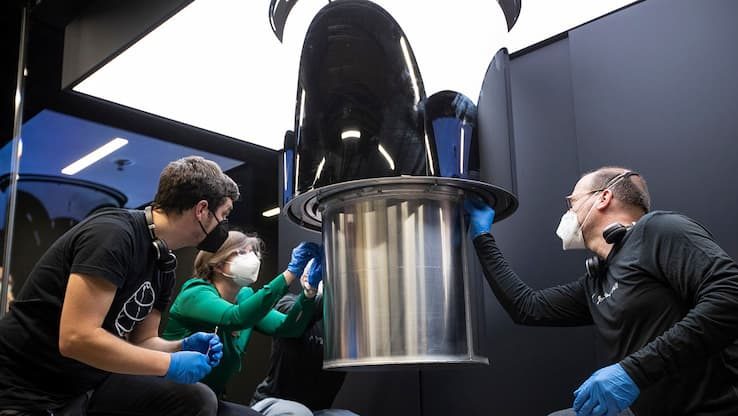RALEGH – Researchers at North Carolina State University have identified a novel form of silicon known as Q-silicon, which exhibits ferromagnetic properties at room temperature. This discovery has significant implications for the advancement of quantum computing, particularly in the development of spin qubit quantum computers that rely on electron spin control.
According to Jay Narayan, the John C. Fan Family Distinguished Chair in Materials Science and the lead author of a research paper on this breakthrough, the robust room temperature ferromagnetism exhibited by Q-silicon opens up new possibilities for atomic-scale, spin-based devices and their integration with nanoelectronics.
Traditionally, ferromagnetism has been associated with transition metals and rare earth materials. However, the discovery of ferromagnetic properties in Q-silicon challenges this notion, as it offers the potential for utilizing spin-polarized electrons for information processing and storage at the atomic level.
The research team at NC State demonstrated that laser-induced melting and rapid cooling of silicon can lead to the formation of Q-silicon, a process that occurs within microseconds. Narayan, a pioneer in laser-based materials synthesis, highlighted that aside from ferromagnetism, Q-silicon also exhibits enhanced hardness and superconductivity.
Narayan emphasized the transformative impact of Q-silicon on modern microelectronics, particularly in the realm of spintronics and quantum computing. By harnessing the electron spin rather than its charge, Q-silicon has the potential to significantly enhance computing speed and efficiency.
The study detailing this discovery is published in Materials Research Letters. Alongside Narayan, Roger Narayan, Siba Sahoo, and Naveen Joshi from NC State contributed to the research, which received funding from the National Science Foundation. NC State has also filed for a U.S. patent related to the Q-silicon innovation.
(C) NCSU


